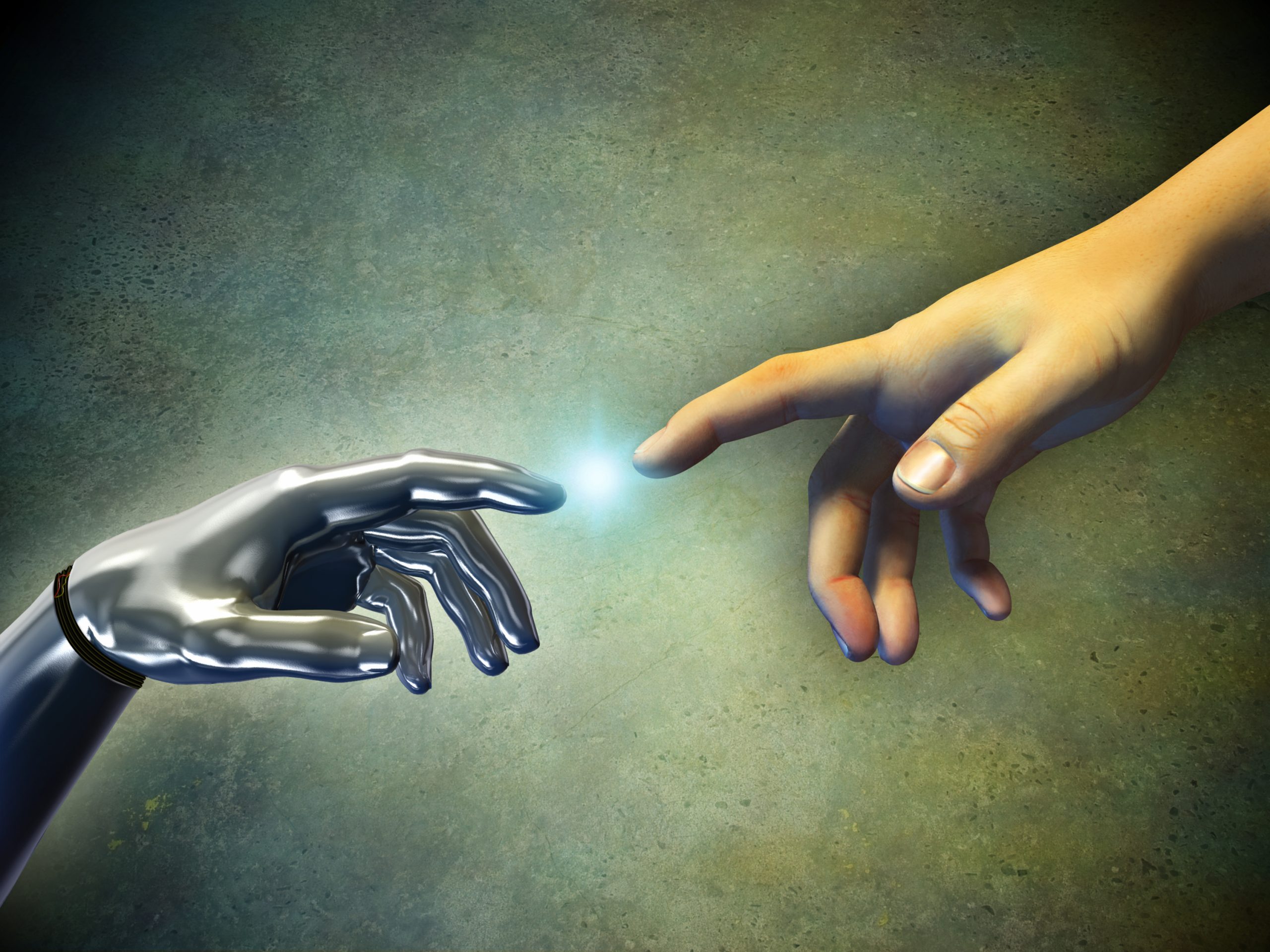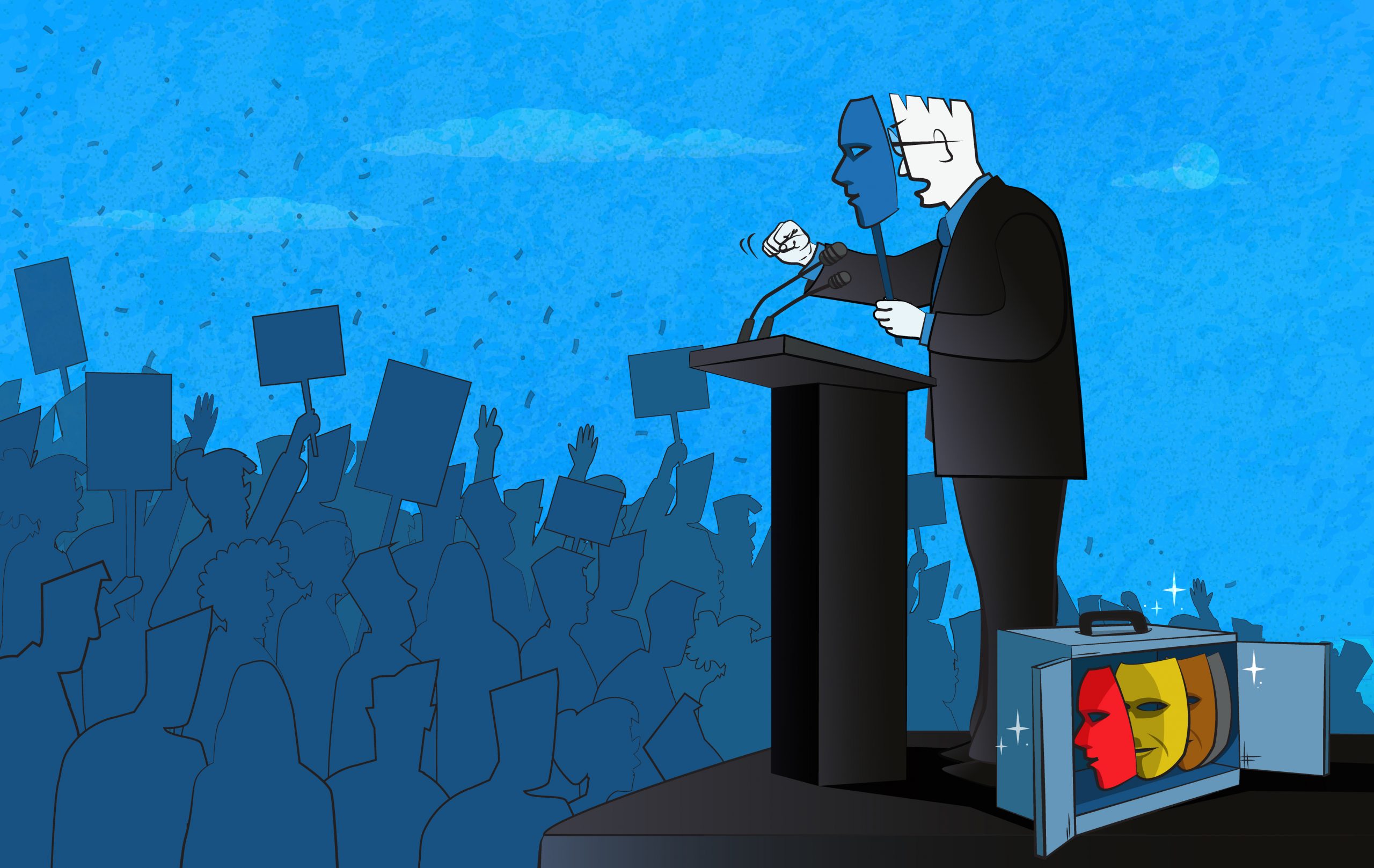American communism never disappeared. It lingers in disguise.
Our Humanity Hinges on a Cyber Second Amendment

Resistance is not futile.
Sign up at humanforever.us to access NFTs and sales of James’s forthcoming book Human, Forever, published on Bitcoin with canonic.xyz.
—
There are two main types of tech criticism. Despite some superficial similarities, they are polar opposites. Here is how to distinguish them.
The first critique recognizes that any blame applied to digital technology for our present miseries must ultimately refer us back to our own errant failures.
The second critique purports to blame our technology, but really blames our humanity.
The first critique concedes that there is no solution to the problem of human errancy. In fact, this critique reflects an understanding that any attempt to end this problem is an effort to end our humanity itself, a cursed enterprise that can only bring vastly more pain and misery than whatever technology might do on its own.
The second critique insists that our flawed humanity can be solved for. Thanks to a unique spark within us, our consciousness is capable of creating and ordering technological entities through which we can escape all the traps of being human and at last achieve perfect justice.
It can be difficult at first to see the second critique for what it is, as it lurks, sometimes less than fully consciously, within much of the current discourse against Silicon Valley. The Facebook “whistleblower,” for instance, presents herself as a principled crusader against greedy brain hackers who got rich making people meme each other into ignorance and hatred.
On closer inspection, however, she and her talking points are part of a concerted effort by America’s ruling public-private regime to convince you that you have a moral obligation to warrant the regime’s prevention of any speech or action—anywhere, at any time—that it deems even potentially contrary to its judgment of how people should talk and act.
The only practicable way to achieve this omnipotent control is through a centralized social credit system, a sort of cyborg vivarium in which what happens to your digital self determines what happens to your flesh-and-blood self. In this setup, your online existence is more “real” to the regime than your offline existence. The virtual world the regime has locked you inside becomes the world that really matters.
It’s easy to see how the regime and its officers would look fondly on such an arrangement. But it’s even more important to see that ordinary people are being reshaped by our digital life to welcome it too. It’s increasingly clear that all the contemporary attacks on traditional life and its age-old roots are growing more radical because they are swarming against the core features of our human identity: our given, incarnate being; our soul; our division into male and female; our biological reproduction; our distinction from our Creator.
The idea that humanity has been tried and has been found wanting is itself an old one. What is new is the advent of automated digital entities so powerful that people feel powerless not to visualize these entities taking over the world and running it, like highly-evolved aliens from outer space, in a way too intelligent for us to comprehend.
While those racing to transform the regime they rule into a social credit vivarium do not often come out and say that their own surrender of power and control is the endpoint of their schemes, it is the premise of their policies. Today’s technology, they believe, will soon accomplish what pre-digital communism was unable to achieve: the obsolescence of politics, the activity recognized since Aristotle as fundamental to, and inalienable from, our humanity.
Today it is clearer than ever that the fake “politics” of our regime is a realm where even its own officials, from the President down, do not really govern—because the “blob” as it is known, or the borg as it might now be known, is really the entity that makes things transpire in that realm.
This mysterious form of posthuman causation is increasingly reflective of the swarm behavior characteristic of our digital entities, a phenomenon of things without souls that regime scientists are desperate to master. One of the most recent efforts at swarm mastery, pursued by everyone from Google researchers to Jeffrey Epstein’s favorite scientist, is so-called “complexity theory,” through which experts hope to learn from bugs, viruses, and bots how to reorganize and manage human beings at scale.
Complexity theory has not delivered enough on its big promises, but there is no time for the regime to wait. China’s own headlong rush to master the digital swarm has led to its winning the race to spin up its own social credit system, one at least deeply resonant and consonant with its traditional civilization. The Anglophone social credit system may already be with us, thanks to the breakneck pace and legal leeway of globalized Western corporations, but it is still relatively weak, and opposition is still fierce among a large segment of the Anglophone peoples. Those at the very top of the regime are “going to war with the army they have,” using whatever tools of propaganda and coercion they can muster to socially and spiritually relocate us out of real life, out of politics, and out of our “prejudice” in favor of our own humanity.
While there is no place for God in our new “home” in the social credit vivarium, the erasure of the line between person and device creates the feeling of an infinity of options for pleasurable idolatry, and, as we now see in corporate life, would-be titans of the new order like Jeff Bezos recognize that being a CEO is obsolete: today, the ultimate in prestige and power is being an archpriest in the cyborg theocracy.
In other words, the regime is responding to the question of how to live well in a digital age by trying to retrieve the Western civilizational tradition of Egypt, where clerics used math to anoint themselves gods and rule absolutely. Yet even the ancient Egyptians did not hold so low an opinion of humanity, or consider themselves justified in reducing the rest of us to subhumanity in order to elevate themselves to a superhuman state.
Even the most powerful tech companies are poorly equipped to defeat or even challenge the new pharaonic disposition of our anti-human regime. Facebook, today’s prime example, is caught in a regime trap: every minute of every day, Facebook’s all-too-human users produce evidence usable by the regime that we cannot be trusted to try to live online the way we do in real life, as human beings.
To be sure, tech critics of the first type are correct that Facebook in some ways has epitomized our quintessential human irresponsibility in building things we do not understand because we feel justified by our beautiful dreams. But the upshot of this line of criticism—that we must re-equip ordinary people with the understanding and agency needed to restore fruitful human control over the foundations of digital technology—points in the opposite direction from what the regime wants, which is to replace Facebook with its own social credit system. Facebook’s own race to escape the regime trap by becoming a “metaverse”—a safe and sanitized cyborg sandbox—gives only a glimpse of the stunted subhuman existence that awaits us in the social credit system our regime aims to perfect, against our manifest wishes, with all deliberate speed.
After Facebook, Fedbook: this is the deluge we have not much longer to prevent. The only way to save our humanity, and politics with it, is for us to recognize together that our hopes are futile without a Cyber Second Amendment or enforced regional equivalents—and without communities that swiftly skill up to put it to proper use. Without plentiful GPUs and databases of our own, without mining the Bitcoin needed to found new markets and cultures conducive to our shared memory and value, we will fail to win the hearts and minds checking their souls at the door as they are onboarded into the cyborg vivarium. Without our incarnate, ensouled human control of the fundamental weapons of the digital age, we will be unable to defend ourselves—not just our preferences and interests or our assets and livelihoods, but our progeny, our identity, our humanity.
The American Mind presents a range of perspectives. Views are writers’ own and do not necessarily represent those of The Claremont Institute.
The American Mind is a publication of the Claremont Institute, a non-profit 501(c)(3) organization, dedicated to restoring the principles of the American Founding to their rightful, preeminent authority in our national life. Interested in supporting our work? Gifts to the Claremont Institute are tax-deductible.
What if they opened the office and nobody came?
Identity politics can’t rule the digital swarm. What can?
A second-wave feminist fails to discern failure
The regime has created new idols for us to venerate.
How our political leaders lost our trust…and how we enabled it.






